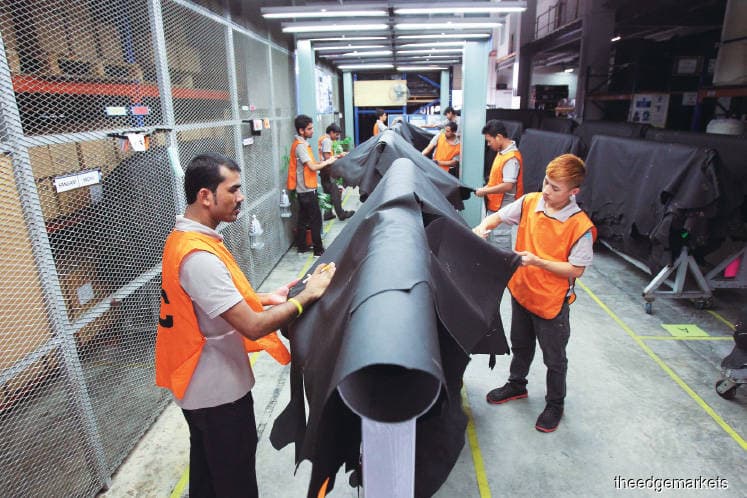
This article first appeared in The Edge Financial Daily on August 22, 2019
KUALA LUMPUR: The ministry of human resources (MoHR) has commissioned a comprehensive study to look into the socioeconomic implications that arise from the employment of foreign interns and low-skilled workers, and will prepare a report on the study’s findings by February 2020.
In a statement yesterday, the MoHR said the study will be conducted by the Institute of Labour Market Information and Analysis, and will look at the issue from the perspectives of employment, job creation, wages, productivity and automation. It will also look at the matter from the perspectives of health, crime, education and public facilities.
“This study will then propose recommendations and plans of action to overcome the issues, challenges, limitations and prevailing weaknesses. It is expected that this report will be ready by February 2020,” the ministry said.
The study will seek “active participation and input from multiple stakeholders” via focal group discussions, workshops and town hall meetings.
As at May 31 this year, there were 1.93 million low-skilled foreign workers in Malaysia, with 34.7% employed in the manufacturing sector, followed by construction (23.4%), services (16.4%), plantation (14.6%) and agriculture (8.3%) sectors. Of the total, 35% are from Indonesia, and 28% from Bangladesh.
The government is aware of mounting criticism against the country’s reliance on foreign workers. The study is commissioned amid what the ministry described as “mounting criticism against Malaysia’s continued over-reliance on foreign workers, particularly over the seeming inability of the government to substantially reduce the numbers”.
“Some of this resentment is justified but some are due to misconceptions over the present government’s stand and preferred approach,” it said.
The ministry said the intake of foreign workers was intended as a short-term solution to manage the rapid industrialisation of the 70s and 80s, but has now become a steady trend as employers seek cheap labour amid difficulty in recruiting locals in construction, plantation and some manufacturing industries.
The issue is further compounded by the presence of “substantial numbers of illegal foreign workers”, it noted.
“Notwithstanding the needs of the business community, the ministry is fully cognisant that the continued reliance on foreign workers can have adverse economic effects on the structural transformation of the Malaysian economy and socio-economic effects on local labour market outcomes,” it said, adding that it is a hurdle to Malaysia achieving high-income status.
“Many quarters also claim that the continued reliance on low production technologies will weaken the case for increased automation and other productivity enhancement initiatives and that the continued creation of low skilled jobs will adversely shape Malaysia’s reputation as a low-skilled labour-intensive nation. However, there is a lack of evidence-based studies to authenticate the veracity of such claims,” it said.
On top of that, there have been concerns raised over the purportedly high number of international student interns undergoing practical training here, it said, with various claims about its potential impact on the labour market and wage rates.
Hence, the study was commissioned in cognisance of the seriousness of the concerns raised, driven by the need to adopt an evidence-based approach and solution. “The ministry sincerely hopes this study will pave the way for a more orderly and mutually beneficial management of low-skilled foreign workers and international interns,” it added.